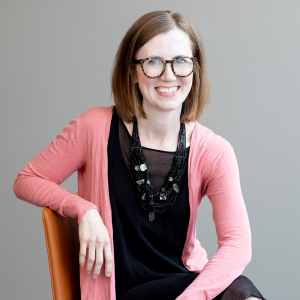Data for your sleepless nights
7/1/14 / Kate Darwent
 A few months ago, I purchased a fancy pedometer to start collecting more data about myself. For those of you fortunate enough to know my slothful self in real life, I’d like to interrupt your laughter to point out that one of the features I was most interested in was the pedometer’s ability to track my sleep. I’m not sure exactly how it tracks my sleep, nor how precise its measurements are, but it has pushed me to think a lot more about my sleep and about sleep in general. I decided I wanted to know how I compared to other people and to look for patterns in my own sleep data.
A few months ago, I purchased a fancy pedometer to start collecting more data about myself. For those of you fortunate enough to know my slothful self in real life, I’d like to interrupt your laughter to point out that one of the features I was most interested in was the pedometer’s ability to track my sleep. I’m not sure exactly how it tracks my sleep, nor how precise its measurements are, but it has pushed me to think a lot more about my sleep and about sleep in general. I decided I wanted to know how I compared to other people and to look for patterns in my own sleep data.
First of all, diving into the world of sleep data is like diving into a crazy rabbit hole. (Rabbits, by the way, sleep 8.4 hours per day, but only 0.9 hours of that are spent dreaming. Humans, however, sleep roughly 8 hours, of which 1.9 hours are spent dreaming.[1] Take that, rabbits.) Questions related to sleep are not necessarily where you would expect them to be. They are shockingly absent from the Behavioral Risk Factor Surveillance System (which measures many behaviors related to health) and yet appear on the American Time Use Survey (ATUS).
Even more interesting, you see different patterns in the data depending on the question format. In the ATUS, they have people track their time use via an activity diary. Basically the dairy has you input what activities you were doing when, with whom and where. Based on these diaries, the Bureau of Labor Statistics estimates that in 2012 Americans were getting more than eight hours of sleep per day on average. These data also show that women were getting more sleep than men, and that a woman my age was averaging almost 9 hours of sleep per night.[2]
Sadly, these numbers seemed a little high to me, and a Gallup survey seemed to agree. In a 2013 survey, when people were asked how many hours of sleep they usually got per night, people reported getting fewer than 7 hours.[3] The difference between the diary findings and the survey findings reminded me of a similar pattern in reports of what people eat. Basically, people are really bad at remembering what they ate during a week, so a daily food diary tends to be the more accurate measurement. So maybe people are also bad at recalling how much sleep they get on average during the week? However, I wonder if filling out the diary for ATUS sometimes feels embarrassing. For example, do people feel too embarrassed to admit to all the T.V. they watch/internet browsing they do, so they end up reporting more sleep?
Another sleep data source I found was this chart of the sleeping habits of geniuses.[4] I imagine that getting enough sleep probably helps all of us reach our genius potential. Based on the chart, the average amount of sleep across this sample of geniuses is about 7.5 hours, which seems reasonable. It is super interesting, though, to see how and when geniuses spread out their sleep across the day.
Back to my own data, I noticed two important things. One, the social context can have a big impact on my sleep. Beth and I went to AAPOR in May, and every night we stayed up too late discussing nerdy things that we had learned/ideas for our own analyses. This resulted in many nights of less than 7 hours of sleep. The week after AAPOR, I went to visit my sister. My sister would readily admit that she finds it almost impossible to be a functioning human being on anything less than 8 hours of sleep. Not surprisingly, I averaged more than 8 hours of sleep during that visit. So, insight number one is that I should only share hotel rooms and/or sleep at the homes of people who value sleep. Unfortunately, I don’t group my friends and family based on their sleeping habits and often I like staying up late to debate nerdy things, like what rabbits even dream about during their roughly one hour of dreaming each day. So, I’m not sure how actionable this insight really is.
Second, I noticed that I slept better when I had walked more during the day. Apparently the last laugh is on me because I’m beginning to suspect that even for those of us who really love sleep, being more physically active might be a critical component of the sleep routine.
